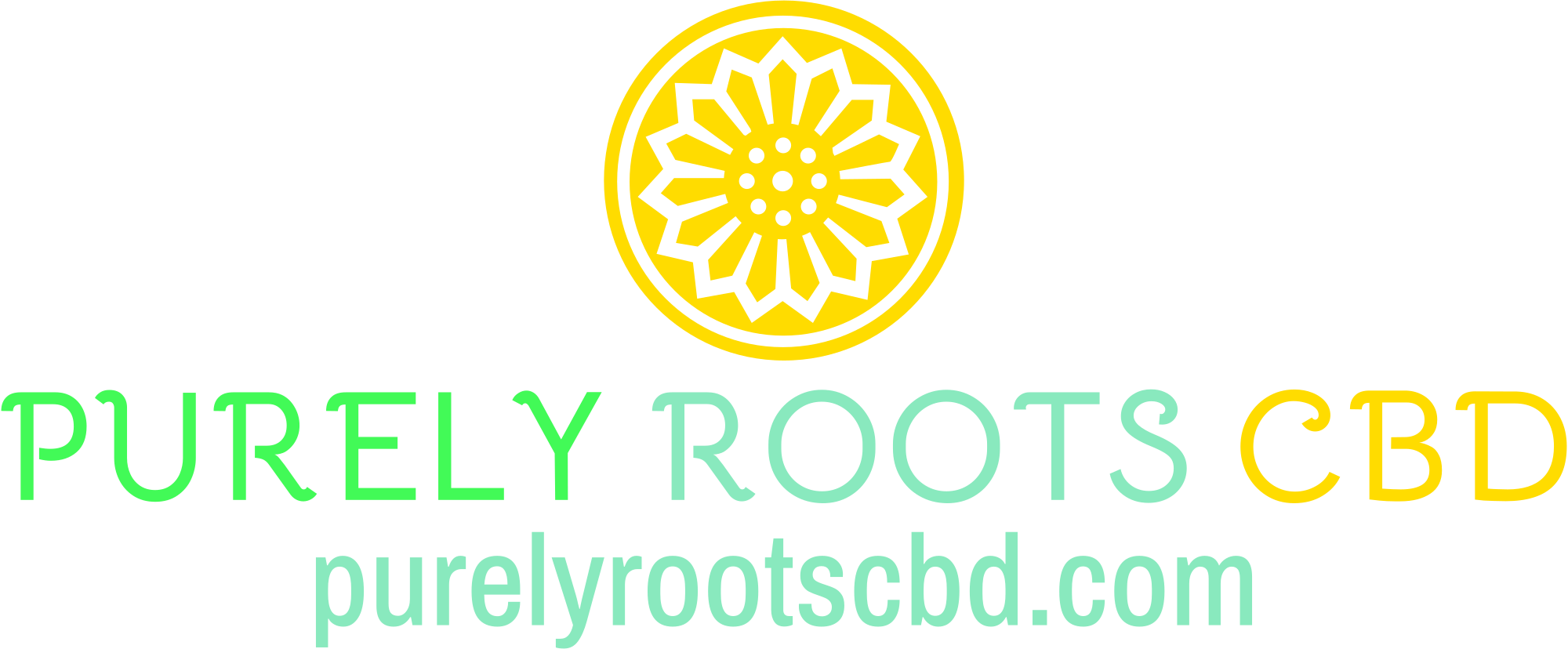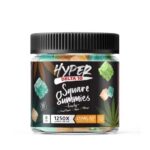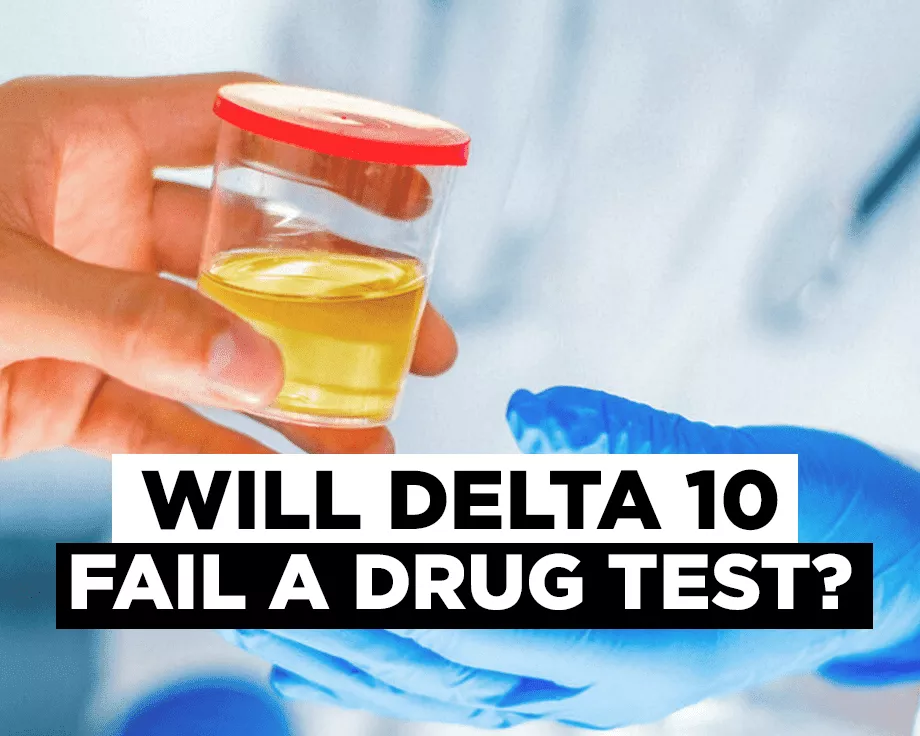THC is one of the major compounds in marijuana and hemp plants, with Delta 10 and Delta 8 being the main variants. This article highlights the differences between Delta-10 and Delta-8 gummies to determine which is stronger. Herein, you will also learn about the benefits of taking Delta THC gummies.
The cannabis world is growing, and people are seeking the plant’s products for recreational and therapeutic purposes. Since the Delta 10 and Delta -8 gummies were introduced in the market, they have been received well by their consumers. They have been used as an alternative to CBD. However, concerns have arisen about which is stronger between Delta-10 gummies and Delta 8 gummies. Most consumers enjoy taking cannabinoids through gummies since they are delicious, discreet, convenient, compact, and easy to dose.
Delta 8 And Delta 10 Gummies Which One Is Stronger?
Delta 8 gummies are more powerful compared to Delta 10 gummies. Helander et al. (2022) suggested that Delta 8 gummies provide its users with the mild psychoactive result. In contrast, Delta 10 gummies are less powerful and do not provide the same intensity as Delta- 8 gummies. This makes Delta-8 gummies more popular than Delta 10 gummies. Delta 10 gummies are still becoming popular because of the advantages it provides.
The reason behind Delta 8 gummies being stronger than Delta 10 gummies is due to their cannabinoid ratio. Delta 8 gummies have higher CBN content, giving them strength and psychoactive effects. Since Delta 8 gummies release THC slower and, at the same time, it tends to last longer. Fattore & Fratta (2011) noted that this compound provides its consumers with sedative and calming effects. This makes consumers enjoy it because it is a natural aid if they have sleeping problems.
According to Kansagara et al. (2019), Delta 10 THC provides a more energizing and uplifting effect on the mind. This is different from Delta 8 gummies since they are more sedative. Delta-8 gummies are more of indica, whereas Delta-10 gummies are more sativa-like. According to Mollazadeh & Hosseinzadeh (2014), sativa is a stimulant strain ideal for projects, work, and social outings. Contrastingly, Tringale & Jensen (2011) noted that indica effects are more tranquilizing, making Delta-10 gummies perfect for a chilled evening indoors. Several factors affect the strength of Delta 8 and delta 10 gummies, including the number of terpenes and cannabinoids, which varies greatly among the two. If you want to experience a eutrophic high, Delta 8 gummies might be the better option.
What Are Delta 8 Gummies?
Delta 8 gummies provide a calming or eutrophic effect. This means that you may consume the gummies without experiencing intense feelings of anxiety and paranoia. Delta 8 gummies are extracted from cannabis plants. They interact with CBD receptors in the brain, resulting in a relaxation feeling while not providing paranoia feelings.
What Are Delta 10 Gummies?
Korem et al. (2016) suggested that Delta 10 gummies help relieve stress and tension. These products are popular in states where medical marijuana is illegal. Stith et al. (2020) also noted that this compound gives its consumers uplifting and relaxing effects without giving them intense emotions such as anxiety and paranoia. Delta 10 gummies can be used as a medication since they contain mild effects.
What Is the Difference between Delta-10 and Delta-8 Gummies?
Both gummies give their users a slight ‘high’ together with calming effects compared to the intense psychoactive effects of other cannabinoids. Delta-8 and Delta-10 gummies can be used as medication. Most consumers prefer Delta-10 gummies since they do not lead to anxiety and paranoia.
Benefits of Delta 8 and Delta 10 Gummies
Boost Appetite
According to Audu et al. (2014), Delta 8 and Delta 10 might effectively boost appetite, just like CBD. Just one dose of either gummies can lead to an increased appetite. If you may be suffering from eating disorders or low appetite, these two types of gummies can be of aid to you.
Aids in Neuroprotection
Both gummies have neuroprotective properties, giving their consumers a healthier brain. They also help in the improvement of cognitive functioning.
Better Sleep
Delta 8 and Delta 10 gummies provide you with a mellow high. They can also help you if you struggle with stress and anxiety. The effects of these gummies may help people who have insomnia.
Pain Relief
Maayah et al. (2020) noted that Delta 8 and Delta 10 gummies contain anti-inflammatory properties that help relieve pain. According to the study, these compounds relieve chronic pain. This is possible since they control the neurons responsible for the transmission of pain in the body.
Conclusion
Delta 10 and Delta 8 gummies have beneficial results for their users. However, it depends on the experience you desire. Being stronger and having more intense results, Delta 8 gummies are found in several products in the market. In contrast, Delta 10 gummies are less severe but equally effective as Delta 8 gummies. Nonetheless, you should use Delta 8 and Delta 10 gummies responsibly according to their dosage and consummation.
It is also important to know that both gummies provide different effects since their bodies are unique. If you are under medication, consult your doctor before using these gummies since you may be allergic to their ingredients. After you find out that they are safe for use, look for the product that best suits you.
References
Audu, B. S., Ofojekwu, P. C., Ujah, A., & Ajima, M. N. O. (2014). Phytochemical,
Proximate Composition, Amino Acid Profile And Characterization Of Marijuana (Cannabis Sativa L.). The Journal Of Phytopharmacology, 3(1), 35-43.
Fattore, L., & Fratta, W. (2011). Beyond THC: The New Generation Of Cannabinoid
Designer Drugs. Frontiers In Behavioral Neuroscience, 5, 60.
Helander, A., Johansson, M., Andersson, A., & Villén, T. (2022). Analytical And Medico‐Legal Problems Linked To The Presence Of Delta‐8‐Tetrahydrocannabinol (Delta‐8‐THC): Results From Urine Drug Testing In Sweden. Drug Testing And Analysis, 14(2), 371-376.
Kansagara, D., Becker, W. C., Ayers, C., & Tetrault, J. M. (2019). Priming Primary Care
Providers To Engage In Evidence-Based Discussions About Cannabis With Patients. Addiction Science & Clinical Practice, 14(1), 1-11.
Maayah, Z. H., Takahara, S., Ferdaoussi, M., & Dyck, J. R. (2020). The Anti-Inflammatory and Analgesic Effects Of Formulated Full-Spectrum Cannabis Extract In The Treatment Of Neuropathic Pain Associated With Multiple Sclerosis. Inflammation Research, 69(6), 549-558.
Tringale, R., & Jensen, C. (2011). Cannabis And Insomnia. Depression, 4(12), 0-68.
- Flavorful Bliss: My Journey with Melo’s THC-Infused Beverages - May 11, 2024
- DELTA 8 GUMMIES By Golden Goat CBD-Exploring the Finest DELTA 8 GUMMIES A Comprehensive Review - February 24, 2024
- CBD Tincture By Just CBD-Unveiling Just CBD’s Tinctures: A Personal Journey Through CBD Bliss - February 24, 2024





